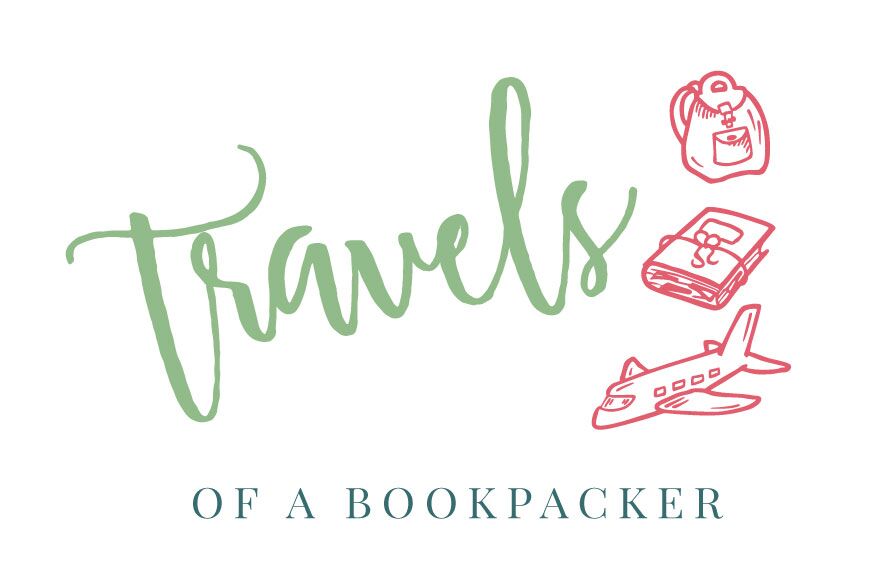Setting a budget for long-term travel is a difficult and very personal task. Knowing how much to save for travel depends on a lot of things and can be tricky if you've never done any long-term travel. So after two years of saving for travel and a year on the road, we wrote up all our advice and ideas for setting (and sticking to) your travel budget.
We recently hit a big milestone of our trip – we’ve spent €10,000! This sounds like a huge amount of money and even writing it down I still feel a little bit shocked. There’s a lot of things we could have done with that kind of cash but we’re confident we’ve made some excellent financial/life decisions.
Here’s what we got for out of our €5k each:
- A converted camper van with everything we needed for a summer road trip
- 6 international flights
- Visas for Iran, Azerbaijan, Sri Lanka and India
- A five-day trip to the Maldives
- Travel through 17 countries (check out our map so far)
- 7 months worth of accommodation, food, transport, beers, snacks and entrance fees
- Complete freedom from work, routine and set itineraries
We’re also really confident we can continue sticking to our travel budget this year and even reduce it slightly because of the locations we’ll be in. But it’s not always easy and it’s taken us several years of travel to hone our skills and be able to set and stick to a realistic travel budget.
When we set off in July we set ourselves a budget of €50 per day (for both of us) no matter what country or our method of transport. Of course, this is easy in places like Georgia but a little more challenging when hanging out in Dubai and the Maldives.
We’ve put together this guide to help you plan a budget for long-term travel and actually stick to it while you’re on the road. These ideas and methods are what have worked for us over the last eight months and on previous trips, but every traveller is different. It may not be the magic formula for everybody but we hope it’s at least helpful!
If you’re still in the saving phase click here to read all our top tips for saving for travel.
How to set a budget for long-term travel
We read A LOT of travel blogs while we were planning our long-term trip and the general consensus seemed to be that €1000 per person per month would cover most parts of the world when travelling on a budget. We decided to have this as our emergency budget (more on that later) but to set ourselves the limit of €1500 for two people per month. Here are some things to consider when setting yourself a budget for long-term travel.
Where you’re going
It’s no news that some countries are cheaper to travel in than others. Obviously, your budget will be less if you’re spending a year in South East Asia as opposed to Western Europe. But most long-term travellers are going to a variety of countries. Have a look at average costs for the countries you’ll be visiting and use this information to adjust your budget. We started out with €50 a day but dropped it to €35 in India.
Your travel style
Know your style. Every traveller is different and will want different levels of comfort. Will you be staying in dorm rooms or do you need a pool and air con? There’s no right or wrong answer but you need to take this into consideration when you’re planning. We like to find budget accommodation but enjoy having our own room, if we stayed in dorm rooms or couchsurfed all the time we could budget for less.
How you’re getting around
Public transport, private transfers, flights – it all effects your spending. Travelling overland is almost always cheaper but there are also very different standards. Some people are happy to slum it on a grubby 14 hour bus journey to save €5, others not so much. It’s also important to think about how often you’ll be moving. If you need inter-city transport every second day it can add up.
This stunning train journey through Sri Lanka set us back a whole €1.50
Who you’re traveling with
Traveling as a couple is NOT twice as expensive. Often a double room is cheaper than two beds in a dorm and every taxi or tuk-tuk is shared between two. So if you’re traveling as a couple you may want to create a combined budget of around 1.75 of a one-person budget.
Habits/addictions
If you smoke or need a coffee every morning you should factor this in. I have an addiction to books and nice handicrafts so I know to leave some room in my budget for shopping and gifts. Max also loves a cold beer in the evening so this is an expense we make sure to have in mind especially when it's as good as the craft beer in Tbilisi.
How to calculate your travel budget
Plan your daily budget for one of the more expensive places you’ll be visiting. Use booking.com to find some hypothetical accommodation and see if you can find an average meal price. Remember to consider if you’ll eat out for 3 meals a day or choose street food, bakeries, supermarkets etc.
Ours looked like this (for 2 people):
Accommodation: €25
Food: €20
Transport: €5
= €50
Then take a look at the ‘extras’ e.g coffee, gifts, entrance fees, tours etc. We added another €15 per day making our total budget €65 per day for 2 people in any country we planned to travel to.
€50 daily total
+ €15 extras
=€65/ day for 2 people
So now you have a daily amount, multiply it by 30 to get your monthly budget.
65 x 30
= €2000 per month or €1000 per person per month.
Once you know how long you want to travel you can figure out your savings goal. Or, like us, you can save as much as possible and have an idea how long this will last. We left Germany with around €25k each so we figured we could go for at least 2 years.
REMEMBER: This is your upper limit or 'emergency budget'. We set this as our travel budget to motivate our savings and give ourselves an idea of how long our money will last. But we actually spend a lot less than this per month. But if anything happens or we want to splash out on nicer accommodation, the money is there.
Sticking to your budget on the road
It’s one thing to set a long-term travel budget but how do you know if you’re sticking to it or not? Here’s how we monitor and track our spending to make sure we don’t go over our monthly budget but still make the most of our travels.
1. Follow a daily budget.
2. But even it out over a month. Know that you’ll go over some days and will have to be under on others to make up for it.
3. Get an app to track your daily spending. We use a free app called Toshl Finance which is awesome. It categorises all your spending and you can input it in any currency and it calculates your daily spending in your home currency.
For more tips read our ideas for travelling Europe on a budget.
Cutting costs while traveling
There are lots of small ways to cut costs while travelling. Sometimes it means spending longer getting around, being a bit uncomfortable or sacrificing dessert but in the end it gives you more time on the road and more flexibility when awesome opportunities arise, like a trip to the Maldives!
Travel with carry-on only – save yourself the checked luggage fee that so many airlines have these days. We love our Osprey Farpoint 40s for this. Check out our review here.
Book budget or great value accommodation – we have whole article on this. Click here to read all our tips and tricks.
Stay longer- the longer you have between travel days the more days these costs are spread over. You also get to know the best places to eat or even have some time to cook for yourself.
Cut down on attractions – if you’re traveling long-term chances are you don’t want to see everything. Be wise about what you pay to see and what you skip in favour of a free hike or some street wandering. Our adventure in the Albanian Alps was much more exciting than another museum!
Sharing is caring – Find other travellers to help share costs of taxis and food or to get discounts on tours. We got some good deals hiking as a group to Annapurna Base Camp.
Get a good credit card- If you can find a card that doesn’t charge when you make withdrawals this will save you a lot on your travels. If not, be wise about withdrawing or exchanging cash in order to avoid losing money.
Be prepared – Read blogs or guides in advance so you have an idea how expensive your next destination is, if there are activities that will cost a lot and if there are any tricks for doing it on the cheap. Example: Our tips for visiting the Bay of Kotor on a budget.
Always have a backup fund
It’s a crazy world out there. Make sure you have travel insurance and a little bit of extra money in case anything happens. We’ve had the worst luck with our electronics and have had to buy a tablet and a laptop on the road. We’ve also had unexpected visa costs, turned up in cities on a public holiday and paid ridiculous amounts for accommodation and splashed out on activities such as safaris and day tours. All of which have been much less stressful knowing we have some backup funds.
Setting a budget for long-term travel is difficult and it will always need to be flexible. But if you do a bit of research you can come up with a good figure to guide your spending and make sure your money lasts through all the countries you plan to see!












A guide to help you plan the perfect Iran itinerary. Options for one, two three and more weeks in Iran including recommended time in each place so you can build your perfect travel itinerary for Iran.